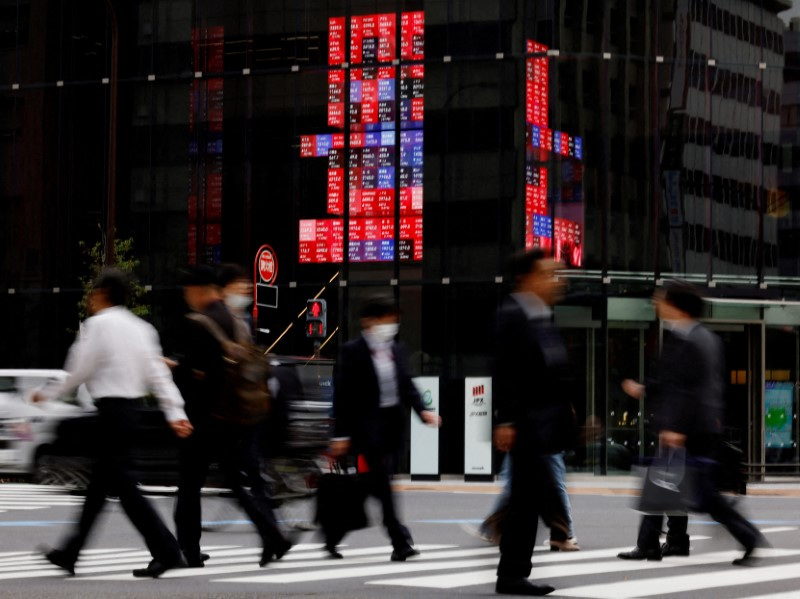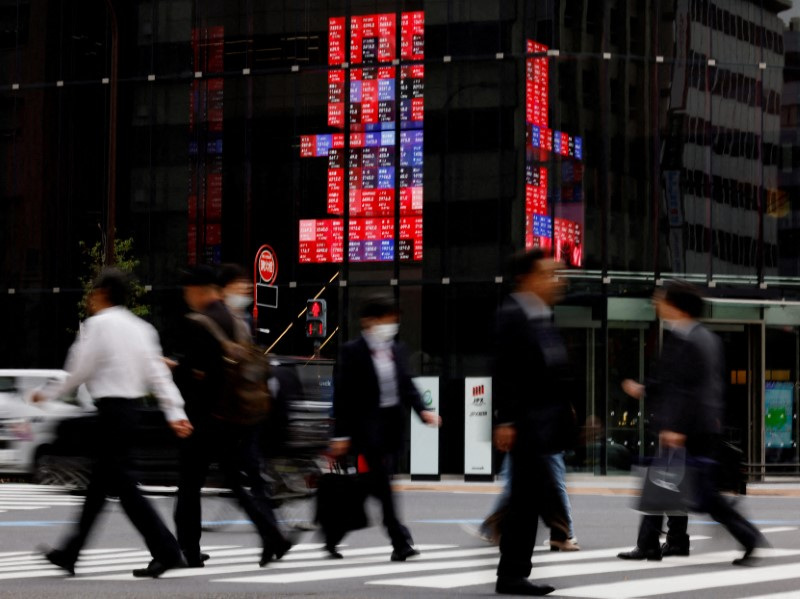
By Kiyoshi Takenaka
TOKYO (Reuters) – Nearly three-quarters of Japanese companies expect Donald Trump’s next term as U.S. president to have a negative impact on their business environment, citing planned tariff hikes and U.S.-China trade tensions as causes of concern, a Reuters survey showed.
Trump returns to the White House in January, having threatened tariffs in excess of 60% on U.S. imports of Chinese goods. A Reuters poll of economists predicts those initial tariffs could be imposed from early next year, with the median estimate at 38% and projections ranging from 15% to 60%.
Trump has also threatened levies of 25% on goods from Canada as well as Mexico, where several Japanese automakers have factories.
“It’s hard to predict his policies, and that makes it difficult for our client companies to make investment decisions,” a manager at a machinery maker wrote in the survey.
While 73% of respondents said Trump’s second tenure at the White House would not be good for their business environment, the rest expect positive impacts, citing an expected expansion of U.S. domestic demand through tax cuts as well as likely revisions to energy and environmental policies.
Asked what measures they would take if Trump hikes tariffs, two-thirds of the survey respondents said their business strategy was unlikely to change, while 22% said they would cut costs and 8% said they would work to expand their presence in markets other than the United States.
The survey was conducted by Nikkei Research for Reuters from Nov. 27 to Dec. 6. Nikkei Research reached out to 505 companies and 236 responded on condition of anonymity.
Though worries about the implications of a second Trump presidency abound, half of the respondents said they expect their earnings to increase in the next financial year. About a fifth anticipate a year-on-year decline while the rest predict earnings will be roughly the same.
Some 1,000 Japanese listed companies saw combined net profit climb 15% in the six months to September, according to an analysis by the Nikkei business daily.
Banks benefited from rate hikes – albeit to still very low levels, while shippers got a boost from higher freight rates and hotel and railroad operators saw a boom in inbound tourism, it said.
About 60% of respondents to the Reuters survey expect the dollar to trade between 140 yen and 150 yen in 2025.
The yen has been under pressure for years due to the large gap between high U.S. interest rates and rock-bottom Japanese rates, with the currency touching an almost four-decade low of 161.96 to the dollar in July. It has since rebounded thanks to both official intervention and Japan tightening monetary policy at the same time as the U.S. loosens and was trading around 151 yen on Wednesday.
Asked about Bank of Japan Governor Kazuo Ueda’s stewardship, slightly more than half of respondents said they held positive views on his ability to normalise the BOJ’s monetary policy after ending negative interest rates in March, the survey showed.
That compares with the 24% who do not hold favourable views of Ueda’s capabilities to do so.
The BOJ raised its short-term policy target to 0.25% in July and just over a half of economists polled by Reuters last month expect the BOJ to raise rates again next week.

